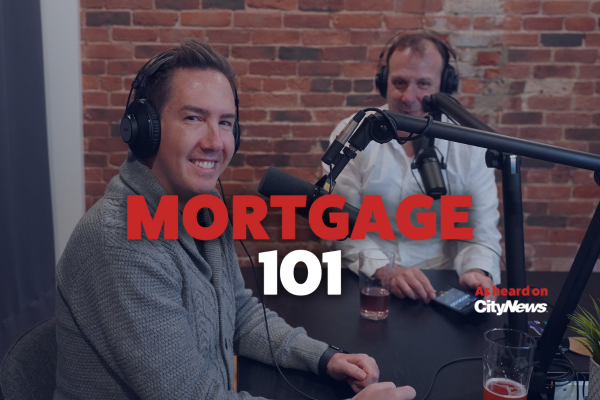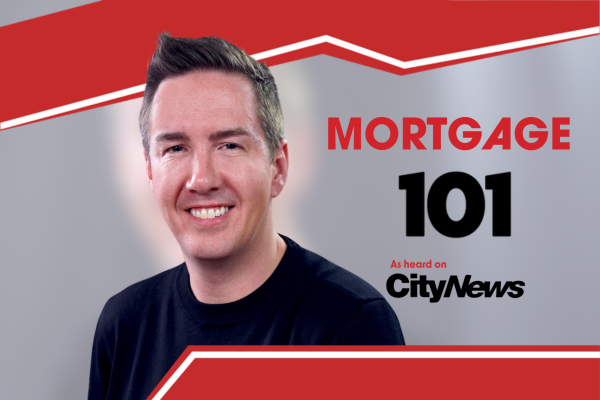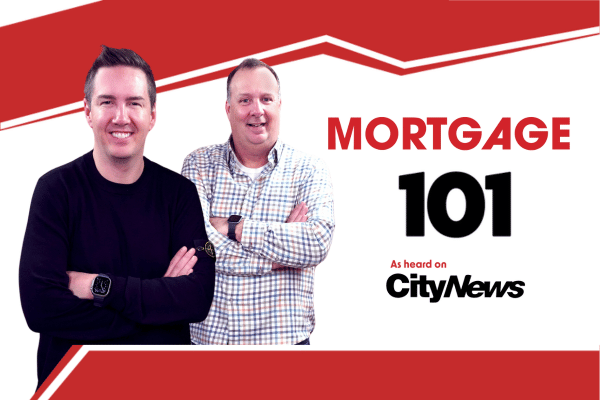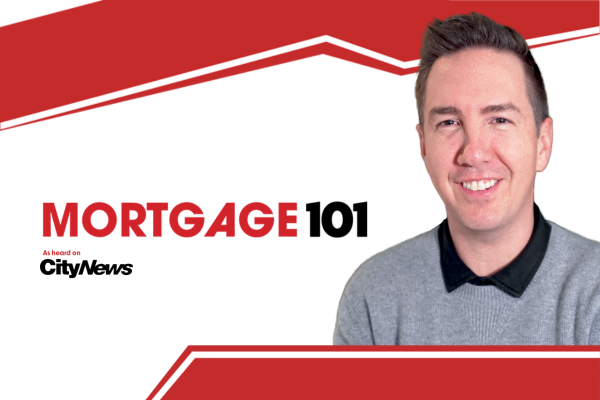What are the implications of the 30-year mortgage? Clinton and Todd sit down this episode and chat a bit more in-depth about what the 30-year mortgage means for first time homebuyers, noting the need for affordable housing options in the region, especially in urban centers like Halifax. Clinton emphasizes the importance of builders offering spec homes to cater to first-time buyers, advocating for standardized, cost-effective builds to reduce market competition and stress for buyers.

Mortgage 101 – Buying A Home At Any Age | May 1st, 2023
There’s many ways to approach homeownership at different stages of life. Clinton Wilkins and Todd Veinotte discuss getting a mortgage at different ages, amortization options, reverse mortgages, Canada’s exemption on principal residences and how buying a home contributes to your net worth.
Todd Veinotte 00:00
Let me ask you a question.
Clinton Wilkins 00:01
Hit me.
Todd Veinotte 00:02
What is the average age of your client? What’s your average client’s age?
Getting a mortgage at different ages
Clinton Wilkins 00:02
I would say my average age of my clients, they’re like in their late 40s.
Todd Veinotte 00:12
That’s about average. Okay, what are the oldest clients that you’ve had?
Clinton Wilkins 00:17
I would say in their 80s
Todd Veinotte 00:18
In their 80s, brand new mortgage ever? Or renewing something.
Clinton Wilkins 00:25
I would say the brand new mortgage ever, definitely were retirees. And they’d moved to Nova Scotia from another province. And I think, typically the seniors that were doing mortgages for they own their own homes. And you know, what a listener actually wrote me an email. It’s a client, and he loves the show. And he specifically wanted us to talk about the mechanics of getting a mortgage when you’re retired? That’s a good question. And I think there’s a misconception out there, that when you become a certain age, you can’t get a mortgage anymore, because you’re like, well, I won’t be able to pay this off in 25 or 30 years. That’s not the truth. With a prime lender, there’s no age restrictions, we’re not ageist, at 80 years old, you can get a mortgage with a 30 year amortization. That is possible. The reason that you may want to do this is potentially, it’s for investment purposes, or you need to modify your home to stay in your home. We’re seeing a lot of seniors take mortgage charges against their property, to maybe give gifts to family. Maybe help them you know, get into the housing market, I’ve seen that a lot. So there’s a lot of reasons why someone may leverage their home. And believe it or not, I see a lot of seniors that have a lot of debt. They might own their home free and clear, but they have you know, $100,000 worth of debt between lines of credit and credit cards.
Todd Veinotte 01:46
So now than the past, say 10 years ago?
Clinton Wilkins 01:48
I would say it’s more common because I think there’s this, you know, real psychological need to like, pay down your mortgage, and I want to hold my home free and clear. Where financially that might not always be the best scenario. And you know, oftentimes the home is the biggest asset. And you know, I think leveraging that home, we’re not talking like we’re leveraging this to 80% loan to value always, sometimes I’m doing a, you know, leverage at 10, 20, 50%. There’s still lots of equity in the property. And I think sometimes the worry is, okay, I’m going to leverage this property, and I’m not going to be able to leave as much money to my kids.
Amortization options and reverse mortgages
Todd Veinotte 02:27
But what’s the smallest amount that you could, if let’s say, a house were paid pretty much or were paid off, and somebody were to say, look, we only want $40,000? So how what would you amortize that over?
Clinton Wilkins 02:40
I mean, you could amortize that over 25 or 30 years if you want, you could have a very small payment.
Todd Veinotte 02:44
So the payment would be like 85 bucks a month or something ridiculous.
Clinton Wilkins 02:47
It would be low. Some lenders have a minimum mortgage amount of $100,000. Some have a minimum work amount of $50,000. So when you start getting below $50,000, not every lender is going to do that,
Todd Veinotte 02:57
So that wasn’t a stupid question?
Clinton Wilkins 02:59
It wasn’t stupid, no. And I think in that case, Todd, I may not do a mortgage, I would recommend maybe doing a home equity line of credit, so then they have more available, you know, credit if they needed it.
Todd Veinotte 03:13
Instead of just getting the cash
Clinton Wilkins 03:14
And you’re only paying interest for the amount that you draw down, because maybe you don’t need your whole $40,000 at once. And you know, some seniors want to do a reverse mortgage, and I think they are, you know, more popular. I think right now, a reverse mortgage isn’t for everyone. Typically, the reverse mortgages are for borrowers that maybe their credits are not as great, or they really have very, very low income, right? Most seniors can afford to make the interest payment on a home equity line. The benefit of a reverse mortgage is there’s no payment, but the rates are higher. So there’s pros and cons. And I sometimes think that there’s a mis-connotation about a reverse mortgage that, you know, when you do pass away, or you have to leave your home, the bank is going to take the house. That’s not the case. The family could either pay off the mortgage, or they could sell the property just like you would with any other lender.
Capital gains and Canada’s exemption on principal residences
Todd Veinotte 04:06
I’m hearing some rumblings in the only reason I bring this up is because I heard recently that there might be some jurisdictions in Canada where where they may be looking at a fixing tax on your on your principal in your house. Did you hear that?
Clinton Wilkins 04:24
No, I had, didn’t. Maybe there was more background, I don’t know.
Todd Veinotte 04:28
Yeah, no, it seems to me that it was I read a news story that a provincial jurisdiction and I can’t remember which one was floating the idea of you paying tax as a gain on your own principal residence?
Clinton Wilkins 04:40
Yeah, I think that might be something that would need to be happening like nationally. I would assume. In terms of a capital gain type situation, I would assume. Typically, when there’s changes to like capital gains tax and things that’s usually done on the federal level, and as you know, the budget just went through and there wasn’t a lot it was almost crickets in the budget for housing. In terms of, you know, homeowners and things like that, it’s typically a time when if the federal government is going to introduce a new program, it’ll be happening around in the budget right? So I don’t know, I would say, that would be very unpopular.
Todd Veinotte 05:14
Yeah. I don’t want anybody to to suggest that they heard that here on this show.
Clinton Wilkins 05:19
And I can tell you, in the US, you do pay capital gains on your principal residence. Where in Canada, we have an exemption, it’s only for your principal residence.
Todd Veinotte 05:29
How long has that been around for, the exemption, because that’s not obviously been forever? When did that come into play?
Clinton Wilkins 05:33
I do not know how long. It’s been for as long as I’ve been in the industry, it’s been that way. And there were changes, or maybe the last budget, there were changes to the capital gains and how long you needed to have be owning a property and there was now tax, the taxation changes, on flips, basically have now become income instead of capital gains, Because the capital gain is still better than you being taxed at your normal tax rate right?
Todd Veinotte 05:59
50%. So to that, I guess the philosophy behind having your principal residence not taxed is to, I would have thought to incentivize people to get into home ownership. That would have been obviously the big reason.
Homeownership is a big part of your net worth
Clinton Wilkins 06:13
I think that’s obviously one reason. And as you know, the federal government has been trying to slow the demand for homeownership. Part of that was obviously through Bank of Canada, increasing that key overnight rate, the rates being high. Because during the last three years, homeownership has become even more accelerated and inflated, due to just the amount of demand. People’s housing needs and requirements have changed over the last couple of years. But now, I think it’s going back into a more normal and balanced market, at least here in Halifax. Like what I said, there, you know, there’s more and more listings, and we’re gonna bring on a guest, we’re gonna bring on our realtor friend of ours, that is gonna come on our show and talk more about the market here in our next segment. So I’ll be curious to hear what he has to say.
Todd Veinotte 07:00
Yeah. So when it comes to, I guess, a house as a as part of your net worth, we know when financial planning is done, that’s one of the things that the financial planner will do is figure out your net worth. And that value, that equity in your home is part of that of that net worth. Some I’ve heard disagree with that feeling as though because you need a place to live, that that shouldn’t that should be perhaps not part of that equation. Do you believe that that should refer to your net worth?
Clinton Wilkins 07:27
No, I think the home is the biggest piece of the net worth in many, many cases. And, you know, I think that’s why paying down the mortgage is so important over time, because your home, in essence, will likely appreciate. And we’ve seen a lot of appreciation in the last couple of years. But then over the life of the mortgage, you’re going to pay down the principal of the mortgage. So every month that goes by your balance should be less than less. So the net worth of that household should increase in essence every month. And I do I think it’s a big piece of the net worth, and I think it is part of the net worth. And you know, that’s part of the reason why people do buy homes. They’re not planning on necessarily staying at home until they pass away. They’re staying in it for you know, there’s a lifetime here.
First time home buyers should focus on starter homes
Todd Veinotte 08:06
And I guess quickly, though, there’s a fundamental argument, though, that this is creating some of the problems for affordable housing, because housing is becoming an investment tool, and it’s viewed in that way. And that is part of what led to this housing issue with affordability. Just quickly thoughts on that?
Clinton Wilkins 08:21
You know, I agree, I think there’s a lot of seniors that are holding on to housing because there’s not a retirement home for them to go to or an apartment for them to go to. Those homes could be really great starter homes. And I think first time homebuyers need to focus on a starter home, get into the real estate market, appreciate it, renovate it, sell it and then move up in the market. I think first time homebuyers right now have this idyllic view of buying their dream home as their very first home.
Todd Veinotte 08:46
All right, we’ve got a guest coming up did you just tell me.
Clinton Wilkins 08:48
James Dwyer is coming on and he’s going to talk to us here about the Halifax real estate market.
Todd Veinotte 08:52
Okay, Mortgage 101 returns right after this.


